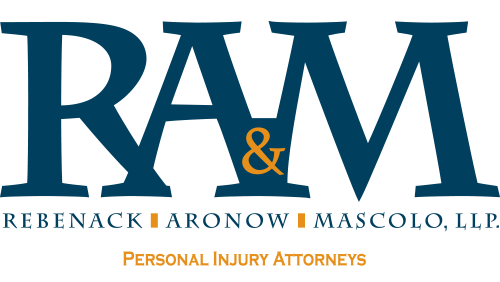Who Is Liable When Maintenance Causes a Commercial Truck Accident?
Vehicular accidents involving commercial trucks cause approximately 5,000 deaths annually in the U.S., and about 70% of those deaths are linked to people in passenger vehicles. Trucking accident attorneys warn that at least 30% of these fatal accidents are caused by a worn or defective tire, which is a highly preventable issue. In fact, poor commercial truck maintenance likely leads to a majority of commercial trucking accidents each year, and determining liability is often an intricate affair.
Who Can Be Liable?
Before determining where fault lies, it is integral to recognize which parties can actually be held accountable. It is also important to note that fault usually lies with multiple parties rather than just one. There are five primary groups generally recognized as potentially being liable. These include:
- Loading companies
- Shipping companies
- Manufacturers of truck parts
- The truck driver or owner-operator
- The trucking company or other employer
When Loading Companies Are Liable
Proper maintenance for a commercial truck is not limited to the truck and the trailer and extends to the cargo. A trucking accident attorney must therefore consider who loaded the truck and whether they adhered to the regulations for weight limits, cargo securement, and so forth. A common scenario in which loading companies are responsible is a load imbalance the leads to a jackknife or overturn. Other scenarios in which a loading company can be at fault include:
- Inadequate recordkeeping
- Unsecured or exposed cargo
- Unqualified people involved in loading
When Shipping Companies Are Liable
While it is uncommon for a shipping company to be liable, there is the potential because—as is the case with loading companies—the trucking company is not responsible for the negligence of an independent contractor. A shipping company has to exercise reasonable care that they hired a competent contractor who was appropriate for the task. If a trucking accident attorney can demonstrate that the shipper did not, then they can be held accountable. A real-world example of this is C.H. Robinson Worldwide, which was liable for a $23.8 million fatality award because of what the court deemed negligent retention.
When Truck Parts Manufacturers Are Liable
A personal injury claim must also consider that the manufacturer of a vehicle part may be liable to a certain degree. Commercial vehicles are no different than passenger vehicles in the sense that defective parts can be attributed to many of the accidents that occur each year. Even in situations where the part is known to be defective and has been recalled by the manufacturer, the manufacturer can be liable. The culpability can be even higher in situations where the manufacturer was unaware of the problem or was aware but did not take adequate steps to remedy the problem. Examples where manufacturers have been held liable include:
- Defective brakes
- Failed power steering
- Tire defects that lead to tire blowouts
- Weak load straps and locks that let cargo tumble
- Cab or trailer coupling systems that lead to jackknifing
When the Truck Driver or Owner-Operator Is Liable

The truck driver or owner-operator—a truck driver who owns his or her own truck—is the obvious answer when determining who is liable for a maintenance problem. In most lawsuits, the driver is at fault at least in part. These professionals received specialized training to earn and maintain their commercial driver’s licenses, and by law, they have a responsibility to inspect their vehicle prior to use.
An important point is whether there was other driver negligence involved, such as driver fatigue, distracted driving, unsafe speeds, hours-of-service violations, and so on. If there was, then a much greater level of the onus falls to the driver. If, on the other hand, poor maintenance is largely or wholly attributed to the accident, then the driver will usually bear only a small portion of the responsibility.
When the Trucking Company or Other Employer Is Liable
It is worth noting that an owner-operator is viewed from two perspectives when it comes to blame. He or she is viewed as the driver as discussed above, but he or she is also viewed as the company and bears greater responsibility when it comes to the upkeep of the vehicle. Even if a trucking company hired the owner-operator as a subcontractor, he or she can bear equal responsibility and perhaps even more. Also worth noting is that a company does not have to be a trucking company in order to be held accountable.
Companies hold responsibility for employed drivers and the trucks they own or lease. If an employed mechanic made an error during maintenance that led to an accident, the company is negligent and therefore responsible. But a company does not necessarily have to be negligent to be responsible. A company may have expectations that are unrealistic, or it may have policies that inadvertently led to the issue.
Can a DOT Inspector Be Held Liable?
Generally, DOT inspectors, law enforcement, weigh station personnel, and so forth cannot be held responsible. When a DOT inspector or state trooper inspects a commercial truck, their responsibility is to ensure that the vehicle adheres to the regulations to the best of their ability. They are not, however, professional maintenance technicians and would, for instance, bear no responsibility for failing to notice tire wear that eventually leads to failure of the tire.
What Truck Maintenance Is Legally Required?
The Federal Motor Carrier Safety Administration maintains extensive regulations on how and how often commercial trucks should be inspected, maintained, and repaired. Truck owners and equipment providers are responsible for systematic inspection, maintenance, and repair, and most major fleets perform predictive maintenance and repairs in order to avoid expected problems.
If at any point a truck fails any aspect of an inspection, then it must be put out of service and marked as such until the necessary maintenance and repairs can be performed. The drivers themselves are legally required to perform pre-trip inspections regarding the condition of their trucks and loads. If an issue is identified, then the driver has the legal responsibility not to operate the vehicle until the issues are corrected. When the current service period ends, a driver must also prepare a report that details any potential issues found or any concerns that the driver may have. This communication between the maintenance crew and the person actually operating the vehicle is often vital to avoiding maintenance problems.
Get the Local Representation You Need
Did a maintenance issue lead to an accident involving a commercial truck that affected you or a loved one? The law firm of Rebenack, Aronow & Mascolo would like to help. RAM Law focuses on representing clients in personal injury cases in New Jersey and has a wealth of experience with lawsuits having to do with commercial truck accidents. We have offices in New Brunswick and Somerville and can provide you a trucking accident attorney who will work diligently to protect your interests. Initial consultations are provided at no cost and without obligation, so schedule your in-person or contactless meeting by calling us at (732) 394-1549 or by contacting us online today.


